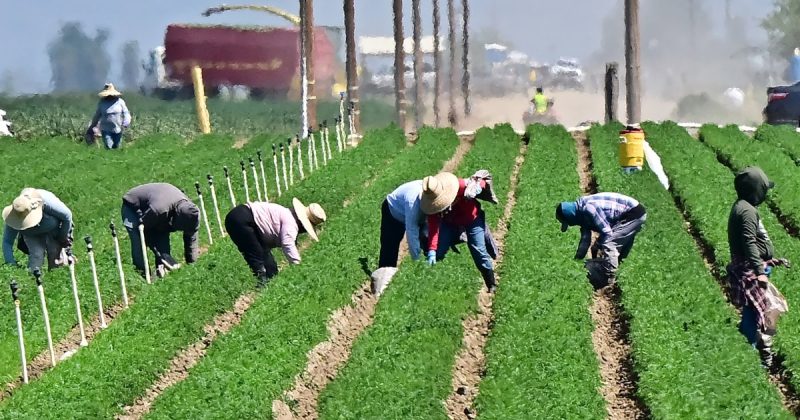
President Donald Trump recently floated a surprising proposal during a Cabinet meeting: a potential pathway to legal status for undocumented farm and hotel workers. The plan, outlined vaguely, suggests that undocumented individuals currently employed in these sectors could leave the country and then return legally, provided their employers vouch for them. Trump stated that farmers and hotel owners would submit letters supporting specific workers, highlighting their contributions and work ethic. This would trigger a process, described as involving a period of ‘slowing things down,’ before these workers could re-enter legally. The specifics of this ‘slowing down’ period remain unclear, leaving room for significant speculation and potential complications.
This proposal represents a stark contrast to Trump’s previous hardline stance on immigration, which heavily emphasized deportations and border security. While his administration has invested significant resources in apprehending and deporting undocumented immigrants, this new suggestion hints at a potential shift in approach, at least for certain segments of the undocumented workforce. The White House, however, offered a more traditional statement emphasizing border security and the enforcement of immigration laws, suggesting the proposal’s details and implementation remain uncertain.
The agricultural and hospitality industries have long relied on undocumented workers, and many employers have expressed concerns about the potential impact of strict enforcement on their labor supply. The proposal’s vagueness, however, raises concerns about potential exploitation and lack of clarity for both employers and the workers themselves. While existing immigration programs exist for legal work, employers frequently cite difficulties in navigating these processes. Advocates for farmworkers and immigrants have long called for improved regulations to protect workers from abuse and ensure fair labor practices.
The proposal also comes at a time of significant pressure on Trump from certain industries heavily reliant on undocumented workers. The economic consequences of a sudden loss of this workforce are considerable, as highlighted by recent industry rallies and lobbying efforts in Washington. The pandemic further exposed the reliance on Latino workers, many of whom were undocumented, in essential sectors. These economic concerns appear to be influencing the ongoing immigration debate and may be a factor in Trump’s seemingly more flexible approach.
The proposal’s impact ultimately hinges on its details and implementation. The ’60-day’ timeframe mentioned by Trump is vague, and the lack of specific procedural guidelines raises questions about practical feasibility. It remains to be seen whether this suggestion will evolve into a concrete policy proposal and how it might affect the ongoing debate on immigration reform.










